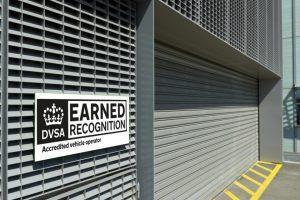
Earned Recognition members have been given the opportunity to bid for Transport for London (TfL) contracts following the launch of a TfL-accredited module – a move which throws down the gauntlet to the Fleet Operator Recognition Scheme (FORS).
The newly launched TfL-accredited module will give Earned Recognition operators the right to bid for construction, logistics, freight, and passenger transport contracts in the capital.
DVSA, which operates the Earned Recognition scheme, said the launch of the module will also give TfL access to a larger pool of operators when awarding contracts.
In a nod to the FORS scheme, DVSA added: “It provides operators with a choice of membership schemes to compete for opportunities.”
However, since the Earned Recognition scheme is free, industry players say it could set off a stampede of operators from the FORS scheme, which has been criticised by hauliers for being too costly.
One operator told MT: “FORS is expensive, whereas Earned Recognition is more or less free, so why would we stay in FORS now we have this alternative? It doesn’t make business sense.”
FORS has around 4,650 accredited FORS operators – divided between the Bronze, Silver and Gold status and operating around 102,000 vehicles.
Member accreditation is via a company audit carried out on the operator’s premises by an independent FORS certification body with members then audited annually.
FORS audit fees vary, with for example a Bronze level operator with two centres and 50 trucks paying £900 for the initial audit and between £1,250 and £1,790 a year to maintain accreditation. Larger fleets with Silver or Gold accreditation can pay considerably more.
In contrast DVSA Earned Recognition is a voluntary and free to join compliance scheme. It helps operators demonstrate to DVSA and their contractors and customers that they meet driver and vehicle standards.
Earned Recognition operators have approved reporting systems that share a summary of performance data with the DVSA Earned Recognition team. If the Earned Recognition team identify any concerns within this data they will support the member operator to fix.
DVSA says that this transparent relationship allows it to have confidence in the safety of Earned Recognition members’ operations, enabling enforcement resources to be targeted on non-compliant operators who pose the greatest risk to road safety.
The Earned Recognition TfL module forms part of the requirements to meet compliance with TfL’s Work Related Road Risk (WRRR) contract clause.
The module is optional, and in addition to the recently updated audit standards that operators need to demonstrate to qualify for Earned Recognition.
Around 10% of the UK’s national HGV fleet now has Earned Recognition accreditation, of which over half (52.2%) have 100 or fewer vehicles and a number have only one, which DVSA says highlights the accessibility of the scheme to operators of all sizes.
DVSA’s chief executive Loveday Ryder, said: “We are delighted to work with TfL as part of the Earned Recognition scheme.
“It demonstrates a growing confidence from authorities in Earned Recognition, as a guarantee of responsible, conscious, and safe operators.
“Ultimately, our focus at DVSA is road safety, and we hope that this announcement will give greater incentive for operators to aspire to be exemplary and be among the safest within industry.”
Responding, FORS concession director Ian Henderson said: “For the past 15 years we have worked to normalise proactive auditing and accreditation in the fleet sector. Therefore, FORS understands TFL’s move to acknowledge the DVSA’s Earned Recognition module as it will help to reduce work-related road risk and offer operators with TfL contracts a wider choice of options.
"We are proud that FORS remains the accreditation scheme of choice for over 4,500 operators across the UK and we will continue to be accessible to all fleet sizes, with discounted rates and audit adjustments available for smaller fleets.
Whilst driving up standards within fleet operations and promoting best practice in safety, environmental protection, and operational efficiency, we will continue to invest in the transformation of FORS, including our industry-leading professional development programme. For instance, our Safe Urban Driving training course, which has been completed by over 118,000 drivers to date, is not only recognised by other schemes in their procurement modules but is currently funded for FORS accredited operators.”













